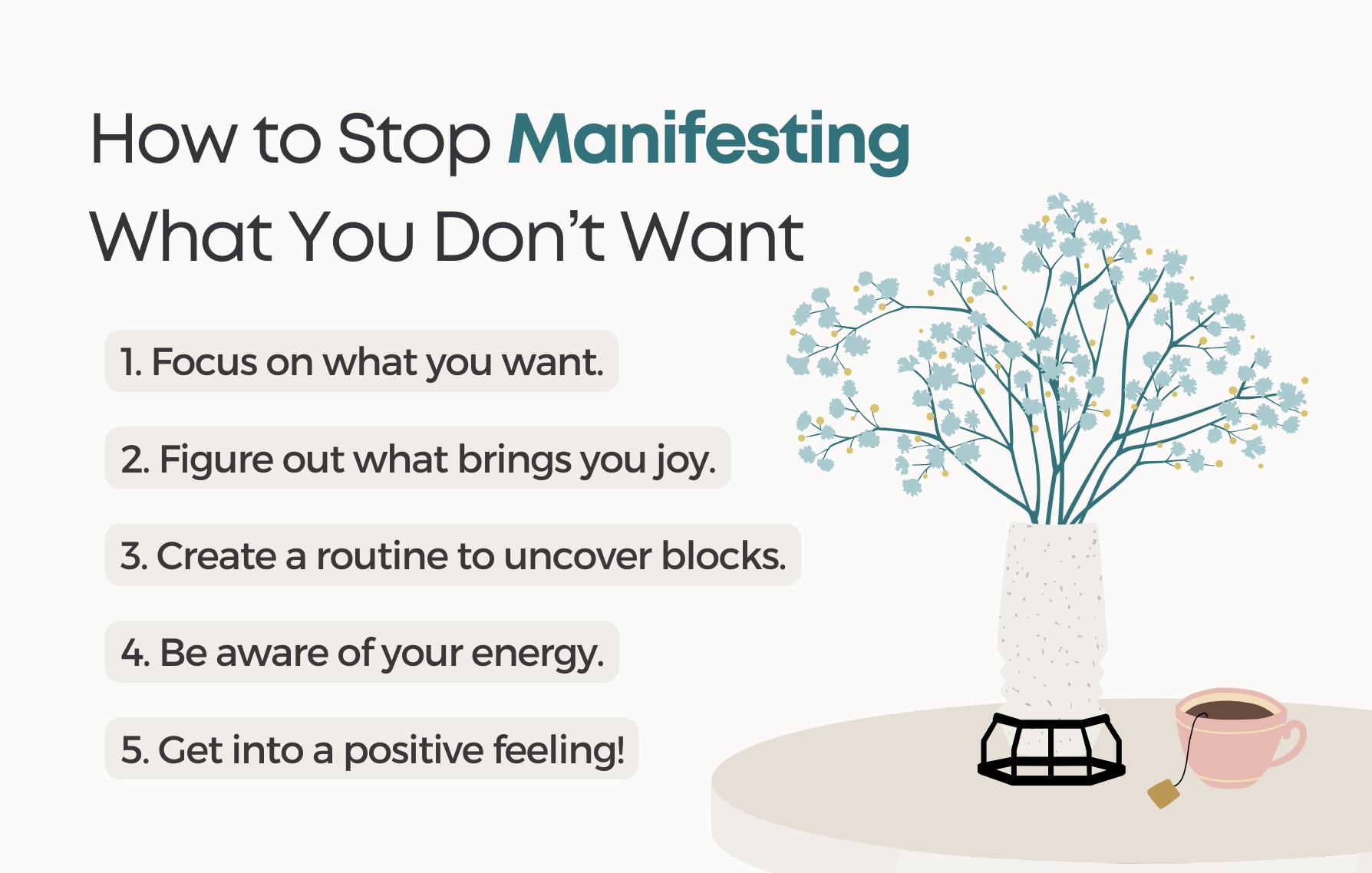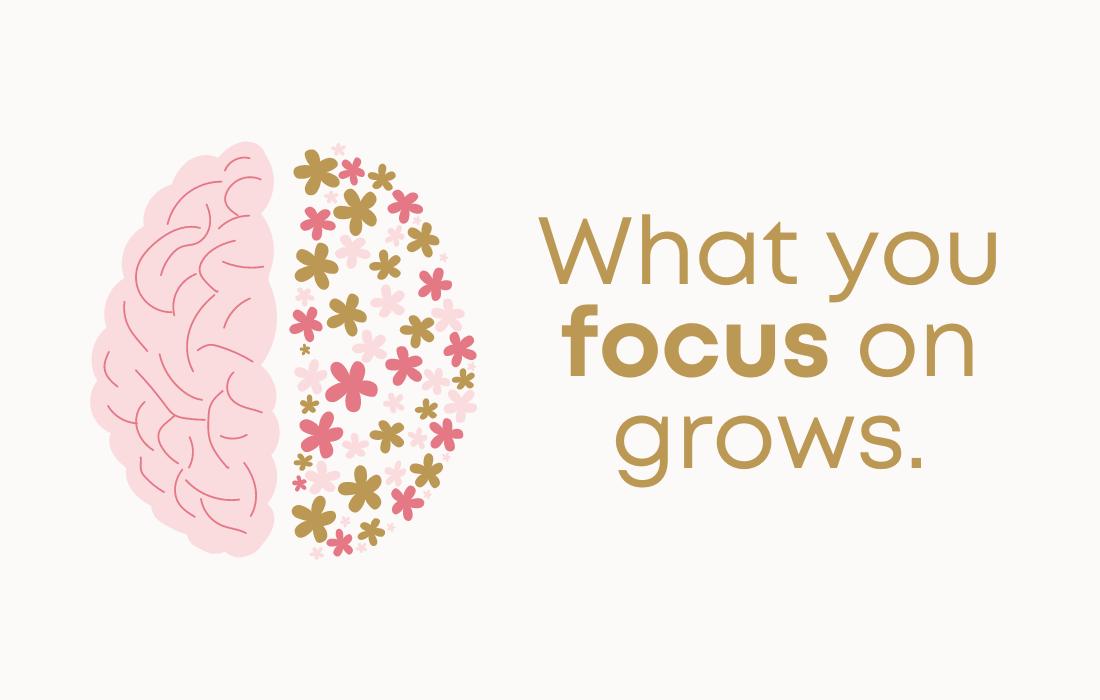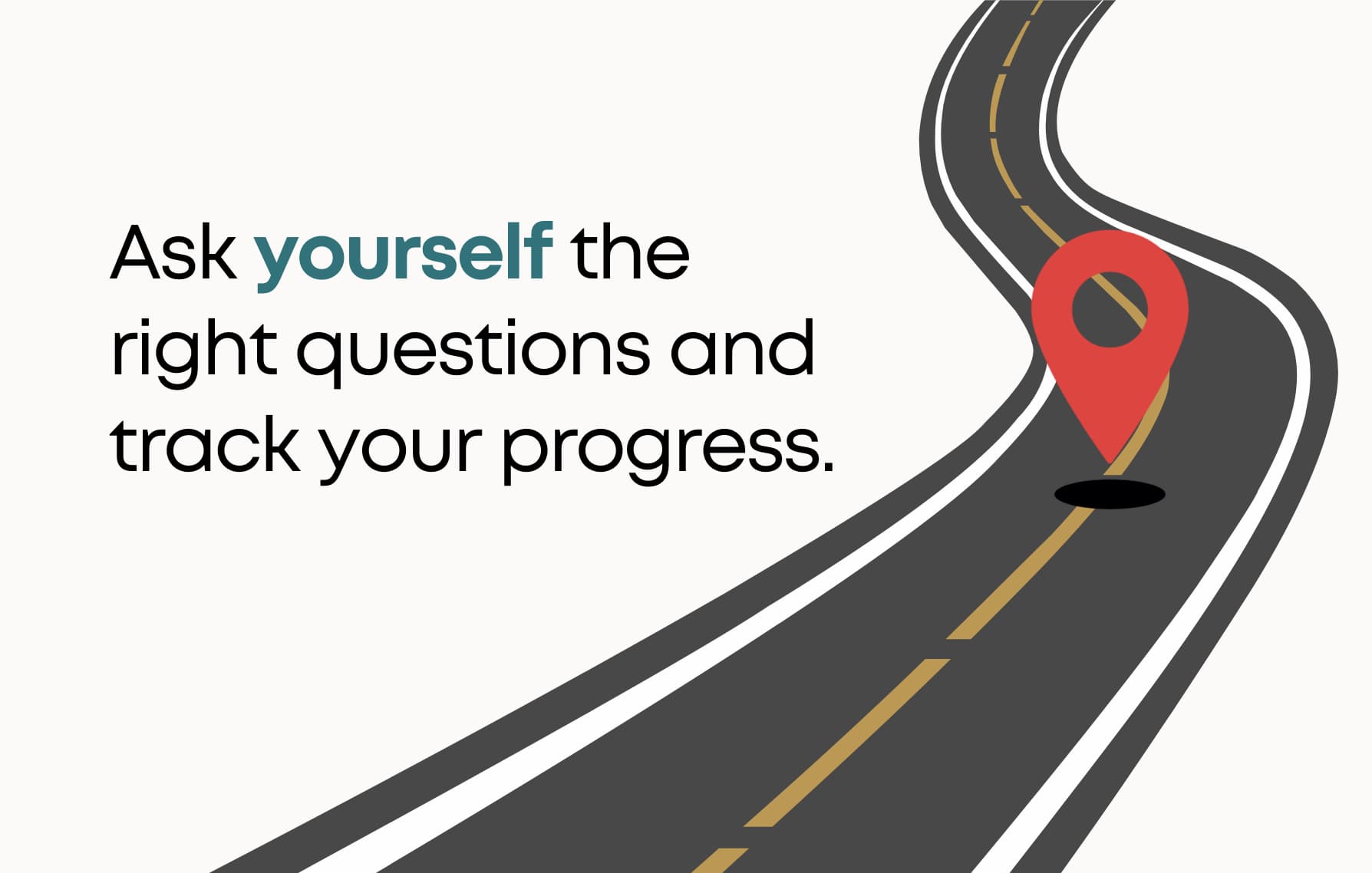Ever find yourself stuck in a loop, getting more of what you don’t want?
It’s like the more you try to avoid something, the more it shows up. But don’t worry — there’s a way out! In this blog post, we’re diving into how to stop manifesting what you don’t want.
Written By Tiffany Woodfield, Financial Coach, TEP®, CRPC®, CIM®
We’ll explore simple, practical steps to shift your focus from the negative to the positive, transforming your thoughts and, ultimately, your life.

5 Ways to Stop Manifesting What You Don’t Want
1 – Instead of saying out loud things you don’t want, say positive, clear statements of what you do want.
2 – Acknowledge how you feel during and after different situations and events to uncover what brings you joy.
3 – Create a routine to identify and record unconscious negative beliefs and money blocks.
4 – Be aware of the influence of your energy.
5 – Dedicate time to changing your beliefs and focusing on how to get into feeling positive.
Can negative thoughts really attract negative outcomes?
Yes, because the subconscious mind works in pictures.
When you think about something negative, your brain automatically works on attracting more negative experiences. If you are thinking, “I don’t want to feel anxious,” then your mind is focusing on being anxious, which creates more anxiety. Instead, say what you want, such as, “I want to be relaxed.” (+)

How can I identify unconscious negative beliefs?
The first step is to pause, check in with yourself, and identify how you feel after various situations.
Some people are naturally more aware, but everyone can train themselves to become aware of how they feel in various situations.
Think of yourself as a doctor trying to make a diagnosis.
You need to ask yourself the right questions, record your baseline and track your progress in a journal (instead of a chart). Changes don’t happen overnight, so I recommend writing down how you feel and checking in after a month. You will see your shifts from negative to positive. This book will act as an accountability partner where you can go back and look at your thought patterns.

For example, be curious and aware of how you feel after meeting with someone, whether a colleague, friend, or family member.
Ask yourself: “Do I feel happier after meeting with them or drained? Was it the person or the environment?”
Record your feelings in a journal dedicated to uncovering your unconscious beliefs.
Also, be aware if you are judging yourself when you are writing down your thoughts, saying things such as, “This person is so nice. How can I be critical?”
This is a negative belief and could mean you believe that you don’t feel you deserve to feel good. Record this and be curious about if this is true.
Other areas to learn if you have unconscious negative beliefs are how you feel after:
- Going to work: Is it the environment or the company you work for?
- Going to an event or concert: If you enjoyed it and feel really good after, write down why you felt good. Is it because there was great company or music?
- Going out for dinner: Be curious about what is most important: the food, the ambiance, or the location.
All of these will help you to understand yourself and how to create more opportunities to do things you love while uncovering your negative beliefs.
What are effective ways to shift from negative to positive thinking?
Some effective ways to shift from negative to positive thinking include:
1 – Acknowledge how you are feeling.
You don’t want to push down how you feel because then it continues to grow. Instead, say things to yourself like, “I feel sad,” or, “I feel lonely.”
Avoid saying I am sad or I am lonely. This difference in how you say it is important.
An example of turning negative to positive thinking is this: I am feeling sad, and I know this will pass. I am resilient.
It is much harder to shift your thinking when you say, “I am sad,” because you don’t feel empowered. You feel like a victim. Can you see the difference?
2 – Meditate to quiet the mind and listen to your heart.
3 – Start a gratitude practice.
4 – Be committed and record your progress.
How do emotions influence what we manifest?
Manifesting is based on quantum physics and the understanding that the universe is energy, and we attract through our energy.
Emotions are energy, and you raise your vibration when you have positive emotions such as love, gratitude and happiness.
Are there specific techniques to avoid negative manifestation?
The most important technique to avoid negative manifestation is to focus on what you do want and not what you don’t want.
Use positive statements such as I want to be successful and then get into the feeling of what it means to be successful.
Quick Video: How to Start Manifesting
Manifesting is a way to bring a vision into reality. In this video I cover three manifesting tips and an important warning. If you don’t do this ONE thing, then manifesting won’t work.
Summary of Key Points:
- Say what you want, not what you don’t.
- Notice what makes you happy.
- Track negative thoughts to find joy blockers.
- Your energy influences what you get.
- Work on feeling positive and changing beliefs.
Get the Free Guide and Audio Meditation for Manifesting Your Dreams
Pop your email address in the form below to get my easy checklist and guide to manifesting and the guided audio meditation to help you get started.
You’ll also get one or two emails per month with the latest blog posts about abundance, wealth-building, manifesting, and creating a fulfilling life.
Related Articles
💎 How To Prevent Negative Thoughts From Manifesting
💎 How To Use Meditation for Manifesting
💎 Manifesting Your Desires: How to Manifest Any Desire You Have
About the Author

TIFFANY WOODFIELD is a financial coach, cross-border expert, and the co-founder of SWAN Wealth based out of Kelowna, BC. As a TEP and associate portfolio manager, Tiffany has extensive experience working with successful professionals who want to leave a legacy and enjoy an adventurous, work-optional lifestyle. Tiffany combines extensive knowledge from her background as a financial professional with coaching and her passion for personal development to help her clients create a unique path that allows them to live their fullest potential. Tiffany has been a regular contributor to Bloomberg TV and has been interviewed by national and international publications, including the Globe and Mail and Barron’s.